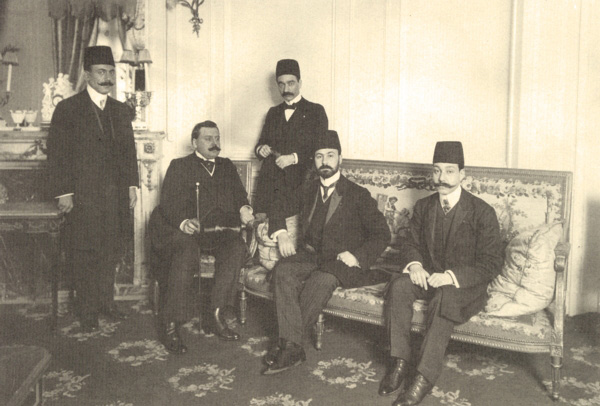The views expressed in our content reflect individual perspectives and do not represent the authoritative views of the Baha'i Faith.
We live in an age of disbelief.
In all of human history, no period has ever fostered so much disbelief. It began during the Renaissance, grew steadily and slowly until the mid-1800s, and then began to spread much more quickly. A larger percentage of the planet’s population now says they have no religion than ever before. The world’s young people have higher and higher levels of agnosticism and atheism. When it comes to questions about our religion, more and more of us mark “None.”
If “None” were a religion, it might be the fastest-growing one.
Why?
Many people have simply concluded that religion makes no sense.
Religious adherence has dropped as the world’s nations increasingly educate their children; as higher education becomes available to more people; as the world continues to contract and as the conflicting truth claims of various religious groups collide.
An increasing number of people believe religion has become obsolete. Millions see religion as an irrational, un-scientific and even destructive force. Today, some believe, a religious outlook on the modern world is an anachronism—or worse, an invitation to violence, war and destruction.
For many, religion and reason now present diametrically-opposed ways of looking at reality.
In fact, some people think that those who profess a religious belief have a lower level of intelligence; a less-questioning nature, that their beliefs betray a certain gullibility and lack of clear judgment. The outlandish, coercive and even disturbed claims and behavior of religious fanatics have only added to this perception.
Modern philosophers, writers and thinkers have described religion as a competing jumble of contradictory beliefs; a set of mindless superstitions; as inherently divisive and destructive; as a money- and power-producing scam; as a jumbled, confusing set of corrupt rites, rituals and restrictions designed to foster dependence and control.
With all that as background, the Baha’i Faith began.
In the middle of the 19th Century, at the same time so many cultures, societies and individuals began rejecting religion, Baha’u’llah proclaimed a new Faith with a new set of truth claims. Those teachings have caused millions of people to reconsider the entire subject of religion, and evaluate it from an entirely different perspective than ever before.
The central Baha’i teaching—the principle around which all the Baha’i teachings revolve—takes a unique, unprecedented and completely unconventional position on the subject of religion. Challenging accepted wisdom and framing the legitimate, intelligent questions unbelievers ask in a very different way, the Baha’i view of Faith and belief teaches that all religion is a single system.
Let me say that again: all religion is a single system.
This startling concept, which we’ll explore in this series of essays, means Baha’is believe that religion evolves. Baha’is believe all religions come from the same source—God. Baha’is believe in the essential oneness of all of the world’s great Faiths. The Baha’i teachings focus on the rational, evolutionary and systems-oriented idea that one God has given humanity one Faith throughout history.
This one continuous Faith, brought into being by a cyclical, sequential series of revelations from the Prophets and Messengers of God, brings the Creator’s evolving teachings to a waiting humanity:
Baha’u’llah said that God has sent religion for the purpose of establishing fellowship among humankind and not to create strife and discord, for all religion is founded upon the love of humanity. Abraham promulgated this principle, Moses summoned all to its recognition, Christ established it, and Muhammad directed mankind to its standard. This is the reality of religion. If we abandon hearsay and investigate the reality and inner significance of the heavenly teachings, we will find the same divine foundation of love for humanity. – Abdu’l-Baha, The Promulgation of Universal Peace, p. 231.
The Baha’i teachings say that Baha’u’llah’s message renews the basis of the divine religions of God and links them in one unified chain of being.
But religion as we know it certainly doesn’t act that way today. Far from unified, it has fragmented into quarreling sects, divisions and denominations. Most people who study religion tend to emphasize those differences, and focus on the divisive elements that keep Faiths and their followers apart. Baha’is actually see this fragmentation and disunity as an integral part of the process:
The foundation underlying all the divine precepts is one reality…. and reality is one. Therefore the foundation of the divine religions is one. But we can see that certain forms and ceremonies have crept in. They are heretical, they are accidental, because they differ, hence they cause differences among religions. If we set aside all superstitions and see the reality of the foundation we shall all agree, because religion is one and not multiple. – Abdu’l-Baha, Divine Philosophy, p. 25.


















Comments
Sign in or create an account
Continue with Facebookor